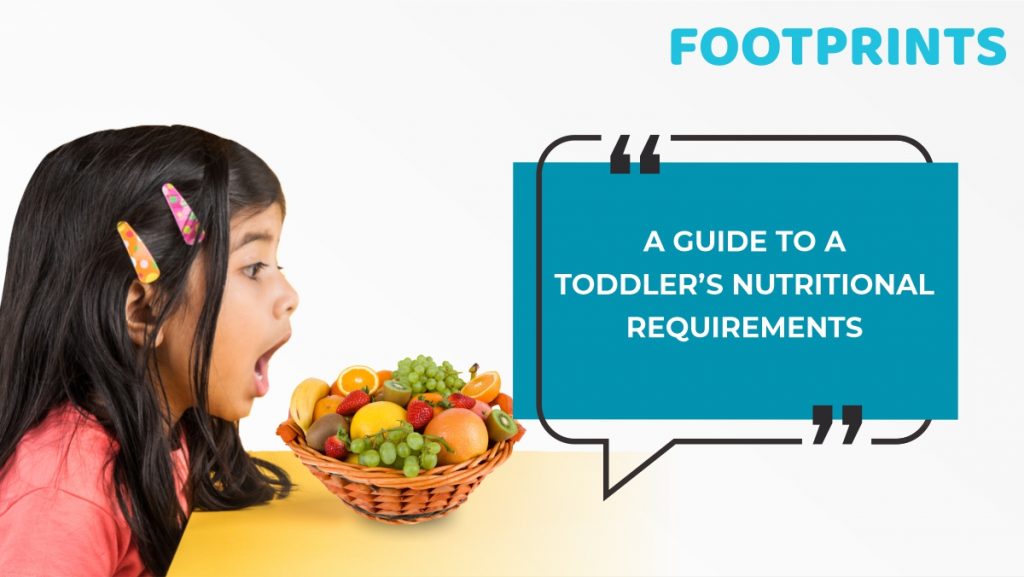
Having a play school kid consume nutritious food is probably one of the most difficult tasks ever. If the food is not tasty, then it is going to be difficult to get it past the barrier of the little ones’ mouths. But there lies the problem, tasty food doesn’t always come with a lot of nutritional value, and nutritious food is not tasty. Yet, as caretakers for toddlers, we must find a balanced diet that will result in the healthy growth of their bodies and mind.
Toddlers may spend a considerable portion of their day at preschool, and what nutrition they are getting there is as important as their home meals. Many preschools consult pediatricians if they are serving school food to children for a daily nutrition guide for toddlers. To know which school also does the same, all you simply have to do is search the web for “play school near me”.
Here is a comprehensive Nutrition Guide for Toddlers: –
Milk
Milk is certainly an essential food for toddlers. It contains several minerals that serve as nutrition for kids. It has calcium and Vitamin D that helps in building strong teeth and bones. Generally, doctors ask caregivers to give whole milk to toddlers, but if there is a history of obesity, high cholesterol, or heart disease in the family, then the doctor may advise for consumption of reduced-fat milk.

Starch
This is part of the diet that consists of maximum calories. This is also a nutrient that can be styled into delicious-tasting food such as bread, pasta, risotto, rice, etc. Feeding starch to play school kids ensures that they are full until their next meal. Starch provides energy and is an easy source of Vitamin B and Calcium. However, these must not be fed in large amounts or abruptly. Start by gradually including this in the diet until the toddler gets used to it.
Protein
At least two portions of proteins must be included in a play school kids’ diet. Proteins can be included in the form of fish, meat, eggs, nuts, lentils, soya beans, tofu, pulses, etc. This is a source of important nutrients for kids. Protein helps in nurturing the brain. As your toddler grows, they start to put more of their brain to use-in learning words, language skills, number skills and for memory, etc.
Some kids are fussy about eating eggs which are an important source of protein. Eggs can be mixed with rice, pasta, or added to bread toast to be fed. Chicken, fish, and soya chunks can be diced into small pieces for easy consumption. Some doctors also recommend taking oily fish (such as salmon, sardines, and fresh tuna) once or twice a week for greater protein intake.

Fruits and Vegetables
The importance of fruits and vegetables as nutrition for toddlers is hardly a matter of debate. Including this in the diet regularly increases the amount of filling fiber in the body. Most fruits and vegetables are low in calories and fat but increase metabolism, which keeps obesity at bay. Fibre passes through the digestive tract and expands while absorbing water that regulates bowel movements. Fruits and vegetables serve major nutritional requirements for 2 3-year-olds as well as toddlers.
Some studies show that consuming sufficient amounts of fruits and vegetables has been seen to increase a child’s attention span and performance in school. Caregivers often couple vegetables as sides with protein and starchy food. Fruits are best eaten fresh but dried fruits; iced-skewered fruits also serve the purpose. Avoid juices as they contain a lot of sugar.
Hydration
Doctors recommend water as the main drink for toddlers and preschool children. On average, children should consume 1.3 liters of water every day. The water should be given in breaks ( 4-6 cups) throughout the day. Hydration helps in maintaining body temperature, regulating metabolism as well serving other needs.
Do not give water in the form of juices and such because too much sugar may cause teeth decay. Toddlers and preschoolers should always drink water from a free-flowing beaker or a cup and not from a bottle. Drinking from a bottle is shown to increase tooth decay. Besides, giving water in cups will also help you to keep track of their water consumption.
Final Words
The nutritional needs of toddlers 1-2 years are vast but simple. Kids usually take a liking to sweet foods instantly but regulating their sugar intake is very important. You have to introduce them to other food by trying it out yourself in front of them, so they start imitating you. Probably the wisest nutrition guide for toddlers is to never take no for an answer because they are almost always fussy with food, and it is your duty as a parent or a caregiver to make sure they’ve had their fill.
Same with when these kids are in preschool, they need to eat the food given to them daily. Make sure the playschool your child is attending caters to such matters. You can run a simple web search about play school near me to get a list. Do a background check of their caregiving policy before enrolling your child there. Your toddler will spend a considerable amount of time at the playschool. Thus, it is important to make sure that their nutritional needs are being fulfilled both at home and school.

Amita is an experienced educator with over 30 years of experience. She has an outstanding understanding of child development, having worked with various age groups for prestigious businesses. She has been dedicated to handling Footprints’s Curriculum and Delivery department for the past decade. Amita’s credentials include being one of India’s few HighScope Curriculum certified trainers and volunteering as a course leader for Landmark Education, the world’s largest training firm.


